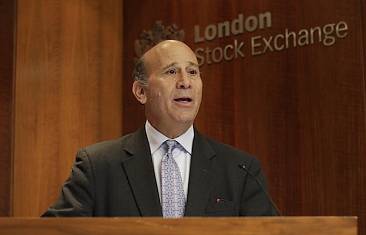The number of international students in Russia is expected to double by 2025, and business schools want a piece of the pie
Tim Mescon is an experienced hand in the business school game. A serial b-school dean and former president of Columbus State University, he’s served as executive vice president of accreditation body AACSB International for over three years.
Based in Amsterdam, the Netherlands, Tim’s only recently returned home from Kazan, Russia, where he witnessed a narrow French victory over Australia in the FIFA World Cup. But Tim wasn’t only in Russia to watch soccer.
On June 13th 2018, the Russian Association of Business Education (RABE) held its annual summer meeting at Kazan Federal University, gathering a host of experts to discuss the latest trends and challenges in the market.
The hot topic on everyone’s lips? Internationalization.
Going global
According to a
report from Russia’s Expert Analytical Center, the number of international students in Russia is expected to double—from around 200,000 to 400,000—by 2025.
Between 2011 and 2016, Russia attracted more international students than Canada, China, and Japan. In 2015, over 14% of international students in Russia enrolled in business and economics programs, the third-largest study segment after engineering, and medicine. Over 60% of those come from former Soviet countries in the Commonwealth of Independent States (CIS); 24% from Asia; over 5% from Africa; 3% from Western Europe.
The report highlights three key factors underpinning the international visibility of Russian business schools: accreditations, journal publications, and partnerships with schools from the West.
AACSB currently boasts nine member schools from Russia, but no Russian business school is AACSB-accredited. Tim, also AACSB’s chief officer for Europe, the Middle East, and Africa (pictured below), says this is more down to the length of the accreditation process—a four-to-five-year review of business school curricula, teaching, and learning standards—rather than any shortcomings on schools’ part.
Right now, Tim says, four Russian business schools are going through the accreditation process. “We think we’ll see our first accredited school in Russia within nine-to-12 months.”
Tim lectured for two years at IBS-Moscow, of RANEPA university, alongside a roster of international faculty and staff. While the MBA degree is not officially recognized by the Russian ministry of education—“legally, it doesn’t exist!” Tim says—many public and private institutions offer EMBA and part-time MBA programs, although most are taught in Russian.
In terms of attracting international students, Tim admits Russian business schools have had more luck recruiting from within the former Soviet Union. “Those are the easiest initial markets,” he says. “The next step is the development of more strong, English-language programs.”
An image problem
For Tim, the perception of Russia in the West is an issue that can’t be ignored. Promoting a welcoming, positive image is important—Western students are less likely to study in Russia while media outlets are reporting on government oppression, election tampering, and deadly clouds of Novichok nerve agent floating across English suburbia.
“That’s why events like the World Cup are so important for Russia to create a different global perspective,” Tim says. “It’s got to be part of a managed PR campaign [on the part of Russian business schools]—something that’s not so different to what US schools are doing now because of President Trump.
“[Internationalization] is an evolutionary process,” he continues, “but Russian business schools are keenly aware of the opportunity to capture a bigger share of the market.”
Mark Thomas, director of international programs at France’s Grenoble École de Management, agrees. Grenoble offers an English-language, part-time MBA program in partnership with RANEPA in Moscow—Mark sees a market opportunity for Western schools to combine their expertise in the softer-side of management with Russia’s historical strengths in hard science and economics.
But Russian business schools going global, he says, is not just about developing links with the West. “There’s a tendency to think ‘international’ means working in English with the US or UK.
“That’s not the case—I’ve been to a lot of American schools with no international competence at all! What I’ve seen from Russian schools is there’s a trend towards the US, but also to the East, South, and China as well.”


